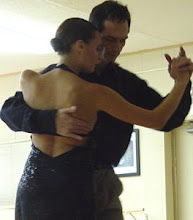On dialectic:
The dialectic was just the sort of high-theory concept that Wilson reflexively avoided. At the same time, he was not a man quick to concede his ignorance, and he devoted a chapter of his book to explaining that the dialectic is basically a religious myth (a characteristic exercise in journalistic debunking). Wilson had no idea what he was talking about. The two-paragraph explanation he gives of the term at the beginning of the chapter on “The Myth of the Dialectic”—the thesis-antithesis-synthesis model—is not the dialectic of Hegel. It is the dialectic of Fichte. And Marx and Engels did not name their method “dialectical materialism.” That was a term assigned to it by Georgi Plekhanov, the man who, after Marx’s death, introduced Marxism to Russia. Engels referred to the method as historical materialism.
In the broadest terms, it is a way of treating each aspect of a historical moment—its art, its industry, its politics—as being implicated in the whole, and of understanding that every dominant idea depends on, defines itself against, whatever it suppresses or excludes. Dialectical thinking is a brake on the tendency to assume that things will continue to be the way they are, only more so, because it reminds us that every paradigm contains the seed of its own undoing, the limit-case that, as it is approached, begins to unravel the whole construct.
Wilson was not drawn to dialectical thinking—he mocks “the Dialectic” in nearly all his writings on Marxism—in part because thinking dialectically is something that American intellectuals don’t naturally do. John Dewey was one of the few who did, and Dewey was trained as a Hegelian. American critics tend to prefer a binary analysis: thumbs up or thumbs down, right or left, tonic or toxin. It is difficult for them to see that most cultural products work in several ways at once. It is even harder for them to see that each element in a cultural system depends for its value on all the others—so that to alter one element is to alter every element. Their overpowering impulse is, like Wilson’s, to isolate and to simplify.
